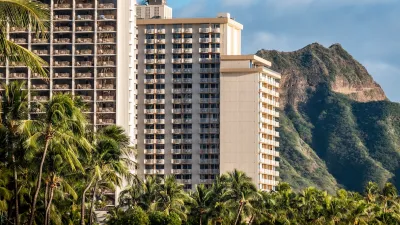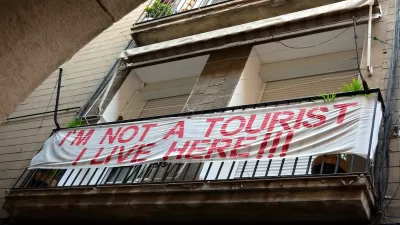Somehow the city of Detroit managed to start enforcing an Airbnb ban in single-family neighborhoods without anyone realize the council had approved the regulation.

Detroit had a sudden onset of controversy this week when the city began notifying Airbnb hosts that the city had outlawed Airbnb for R1 and R2 zoning.
"The new zoning ordinance apparently went through the Planning Commission and City Council in 2017, and went into effect this week," reported Robin Runyon on February 8.
By February 9, the city was walking back the Airbnb ban, "saying that the new ordinance is under legal review and they won’t be enforcing it at this time." Runyon has updated the article to reflect the evolution of the story.
In a separate article published on February 9, after the controversy had erupted, Katrease Stafford reported that the city announced it wouldn't immediately enforce the ban. "Instead, the city has asked its law department to review the new zoning ordinance amendment, which impacts properties zoned R1 and R2," according to Stafford.
As for the main cause of the confusion and controversy, the "ban sparked confusion among some homeowners who said they rent out rooms in their home through Airbnb." David Bell, director of the Buildings, Safety Engineering & Environmental Department (BSEED), put out a statement on February 9 explaining that he didn't believe that the ordinance was intended to prevent homeowners from renting out rooms.
For more coverage of the controversy and the response from the city, see also an article by Tom Perkins.
FULL STORY: Detroit just banned Airbnb without anyone knowing it [updated]

Planetizen Federal Action Tracker
A weekly monitor of how Trump’s orders and actions are impacting planners and planning in America.

San Francisco's School District Spent $105M To Build Affordable Housing for Teachers — And That's Just the Beginning
SFUSD joins a growing list of school districts using their land holdings to address housing affordability challenges faced by their own employees.

The Tiny, Adorable $7,000 Car Turning Japan Onto EVs
The single seat Mibot charges from a regular plug as quickly as an iPad, and is about half the price of an average EV.

Seattle's Plan for Adopting Driverless Cars
Equity, safety, accessibility and affordability are front of mind as the city prepares for robotaxis and other autonomous vehicles.

As Trump Phases Out FEMA, Is It Time to Flee the Floodplains?
With less federal funding available for disaster relief efforts, the need to relocate at-risk communities is more urgent than ever.

With Protected Lanes, 460% More People Commute by Bike
For those needing more ammo, more data proving what we already knew is here.
Urban Design for Planners 1: Software Tools
This six-course series explores essential urban design concepts using open source software and equips planners with the tools they need to participate fully in the urban design process.
Planning for Universal Design
Learn the tools for implementing Universal Design in planning regulations.
Smith Gee Studio
City of Charlotte
City of Camden Redevelopment Agency
City of Astoria
Transportation Research & Education Center (TREC) at Portland State University
US High Speed Rail Association
City of Camden Redevelopment Agency
Municipality of Princeton (NJ)





























